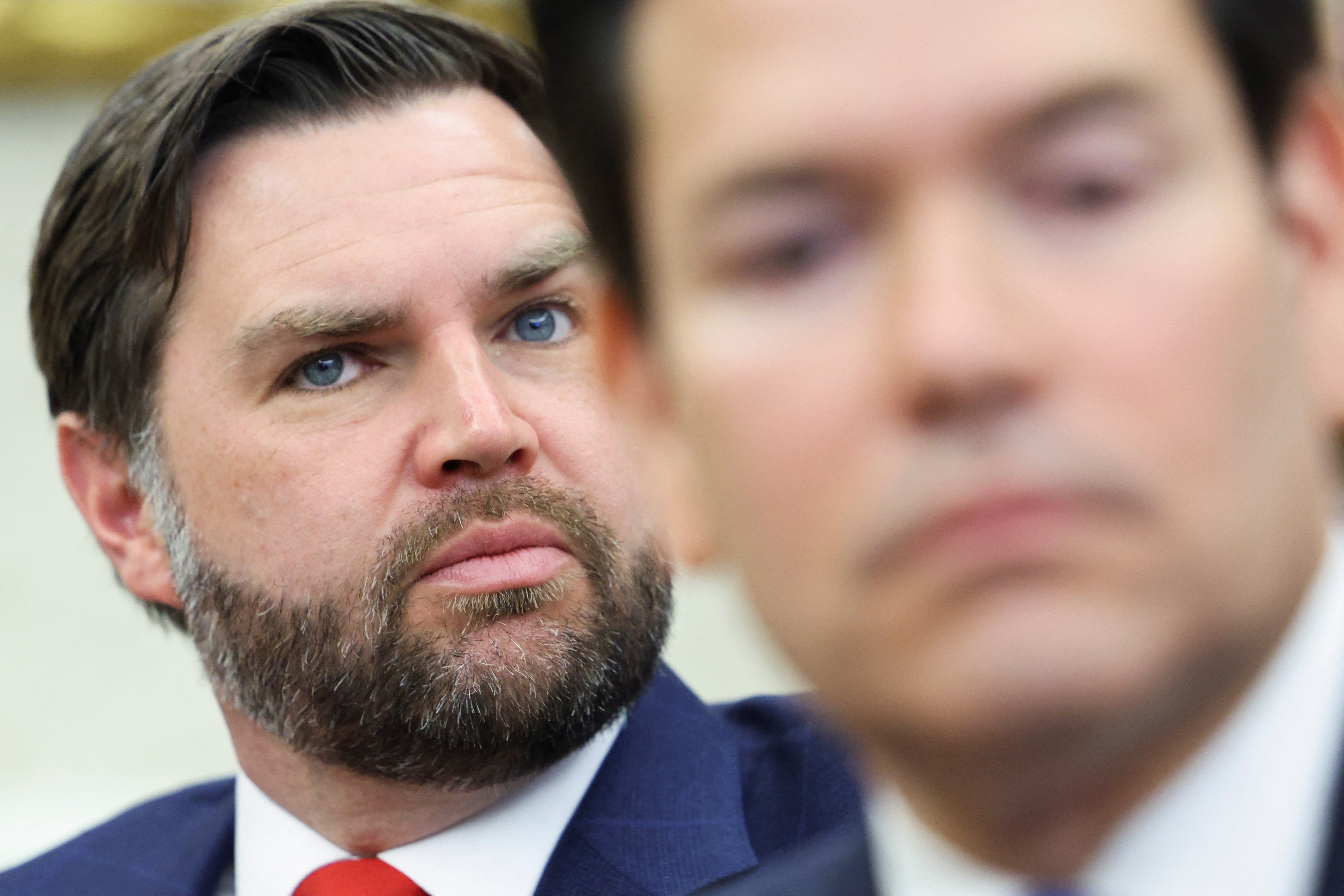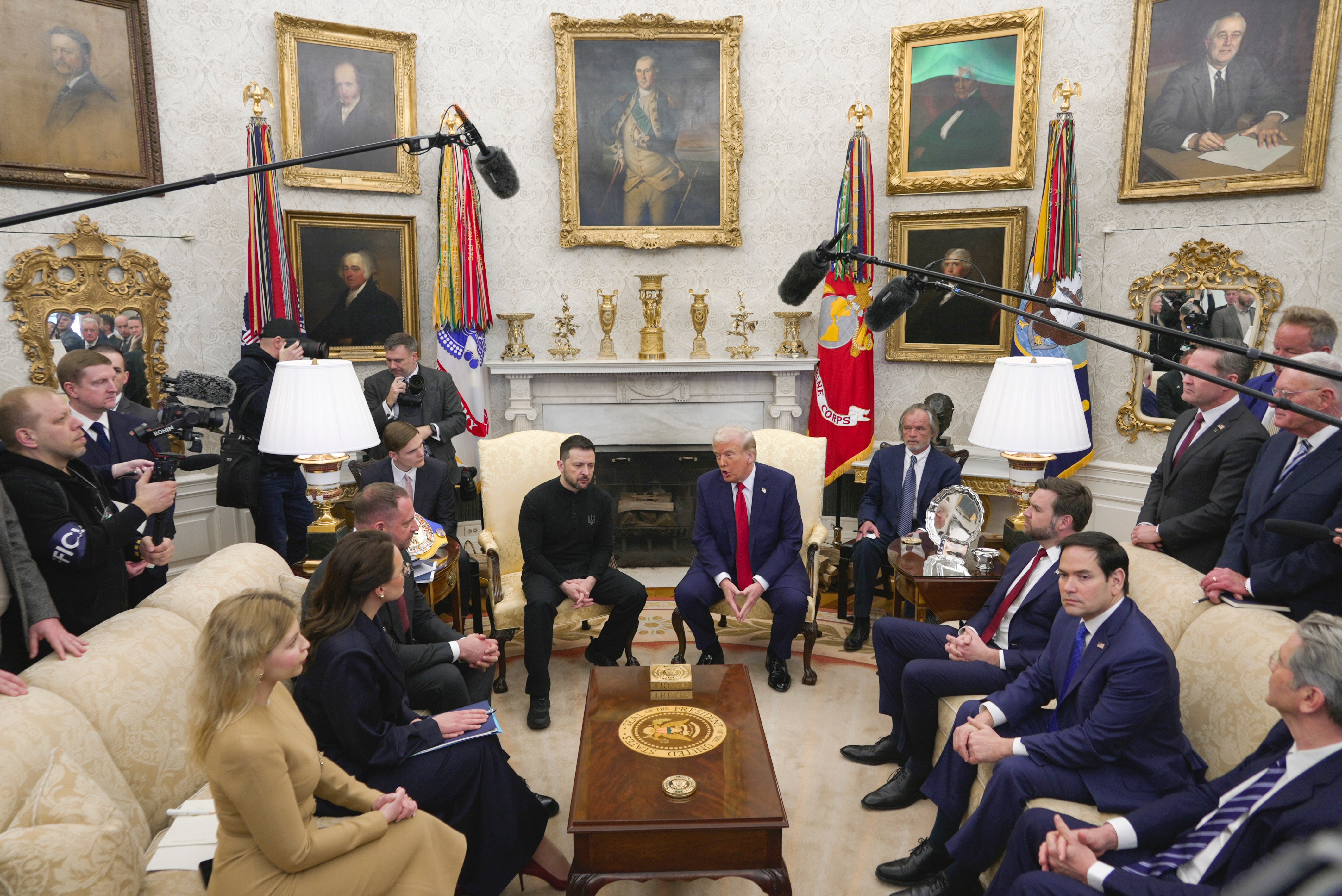Your support helps us to tell the story
From reproductive rights to climate change to Big Tech, The Independent is on the ground when the story is developing. Whether it’s investigating the financials of Elon Musk’s pro-Trump PAC or producing our latest documentary, ‘The A Word’, which shines a light on the American women fighting for reproductive rights, we know how important it is to parse out the facts from the messaging.
At such a critical moment in US history, we need reporters on the ground. Your donation allows us to keep sending journalists to speak to both sides of the story.
The Independent is trusted by Americans across the entire political spectrum. And unlike many other quality news outlets, we choose not to lock Americans out of our reporting and analysis with paywalls. We believe quality journalism should be available to everyone, paid for by those who can afford it.
Your support makes all the difference.
Read more
Donald Trump over the weekend floated the possibility that Marco Rubio, his secretary of State, could run for president in 2028.
The remark, made during an interview with NBC’s Meet the Press, was notable given that Trump himself ran against Rubio for the GOP nomination for president in 2016, eventually winning the contest that year. At the time, the two men engaged in one of the bitterest spats of the Republican primary field.
Trump, who once dubbed his Cabinet secretary “Lil’ Marco”, told NBC’s Kristen Welker in an interview which aired Sunday that Rubio and others who could run for the Republican nomination in 2028 were “fantastic”, adding that he himself was not seriously looking at ways to run for a third term. The latter idea had been floated in recent weeks by Steve Bannon, his former White House chief strategist, and other MAGAworld allies.
“You look at Marco, you look at JD Vance, who’s fantastic,” Trump said. “You look at — I could name 10, 15, 20 people right now just sitting here.”

open image in gallery
Rubio, who was Trump’s Cabinet nominee to sail through the Senate with the cleanest confirmation process of any of the president’s picks, has become the face of the administration’s efforts to redefine which civil rights apply to US visa holders and noncitizens in the country legally or otherwise. Rubio, along with the president, has taken the position that noncitizens do not have the protected right to engage in protests or other forms of typically-protected speech, particularly when it does not align with the White House’s support for Israel’s government.
He once served as a semi-moderate voice in the Senate and was part of a bipartisan group known as the “Gang of Eight” who led an effort to pass comprehensive immigration reform in 2013, under Barack Obama’s second term in office. The effort failed.
Now, Rubio serves in a hardline Republican administration which has publicly stated its aim to deport up to one million people during the president’s first year in office. As the nation’s top diplomat, he’s also been on hand for major shifts in American foreign policy, including the moment Trump and JD Vance blew up at Ukraine’s president, Volodymyr Zelensky, during a tense Oval Office meeting.
His appeal among the MAGA base remains low, however, and it’s likely that the onetime senator would be forced to carve out a more hawkish platform than a true acolyte of the president’s, like Vance, were he to run in 2028 amid a crowded Republican field. A poll in April found him nominally tied with Florida Governor Ron DeSantis for the nomination, though both men trailed Vice President JD Vance by a massive 50-point gulf.
The two are also, according to NBC News, “good friends”. Rubio and Vance are likely to discuss any potential plans with one another before making them public, possibly blunting the edge that either candidate would take against their opponent in a head-to-head matchup.
“They’ve got a really good personal and professional relationship, so if they’re both running, I have no doubt there will be a [conversation] about it beforehand,” a person familiar with their dynamics told NBC News this week.

open image in gallery
Rubio has one key advantage over Vance — he won election in Florida first in 2010, when the state was a comparatively much purpler place. Vance has, for all of his MAGAworld credentials, never won an election without Donald Trump’s endorsement and the backing of the Trump political machine. But that’s also, paradoxically, Vance’s biggest strength: even if Donald Trump personally rides off into the sunset through 2028, the vice president remains a close ally of Trump’s eldest son, Donald Trump Jr.
Both are similar in one regard: they have issued damning criticism of the current president, only to walk it all back after joining the president’s sphere of influence. Vance once referred to the president as potentially “America’s Hitler”, while Rubio laid out his own blunt assessment of Trump’s supporters during his bid for the presidency in 2016.
“I can tell you this: whatever happens in this election, for years to come, there are many people on the right, in the media, and voters at large, that are going to be having to explain and justify how they fell into this trap of supporting Donald Trump, because this is not going to end well, one way or the other,” said Marco Rubio in a 2016 CNN interview.
The younger Trump threw his own segment of the Trump network behind Vance before his father did during the Ohio Republican’s 2022 bid for US Senate, which Vance won after rocketing past other Republicans with actual statewide elected experience to snag the job. Similar in age and spirit as a fellow terminally-online culture warrior, Trump Jr. had the senator’s back again when it came time for his father to pick a running mate in 2024 — the first, but possibly not last, occasion where Vance came out the victor over Rubio and a list of other Republicans.
With the president now officially ruling out a fourth run for the White House next cycle, all eyes are on the two biggest-name Republicans in his inner circle as both will likely jockey for the spotlight over the next three years.


